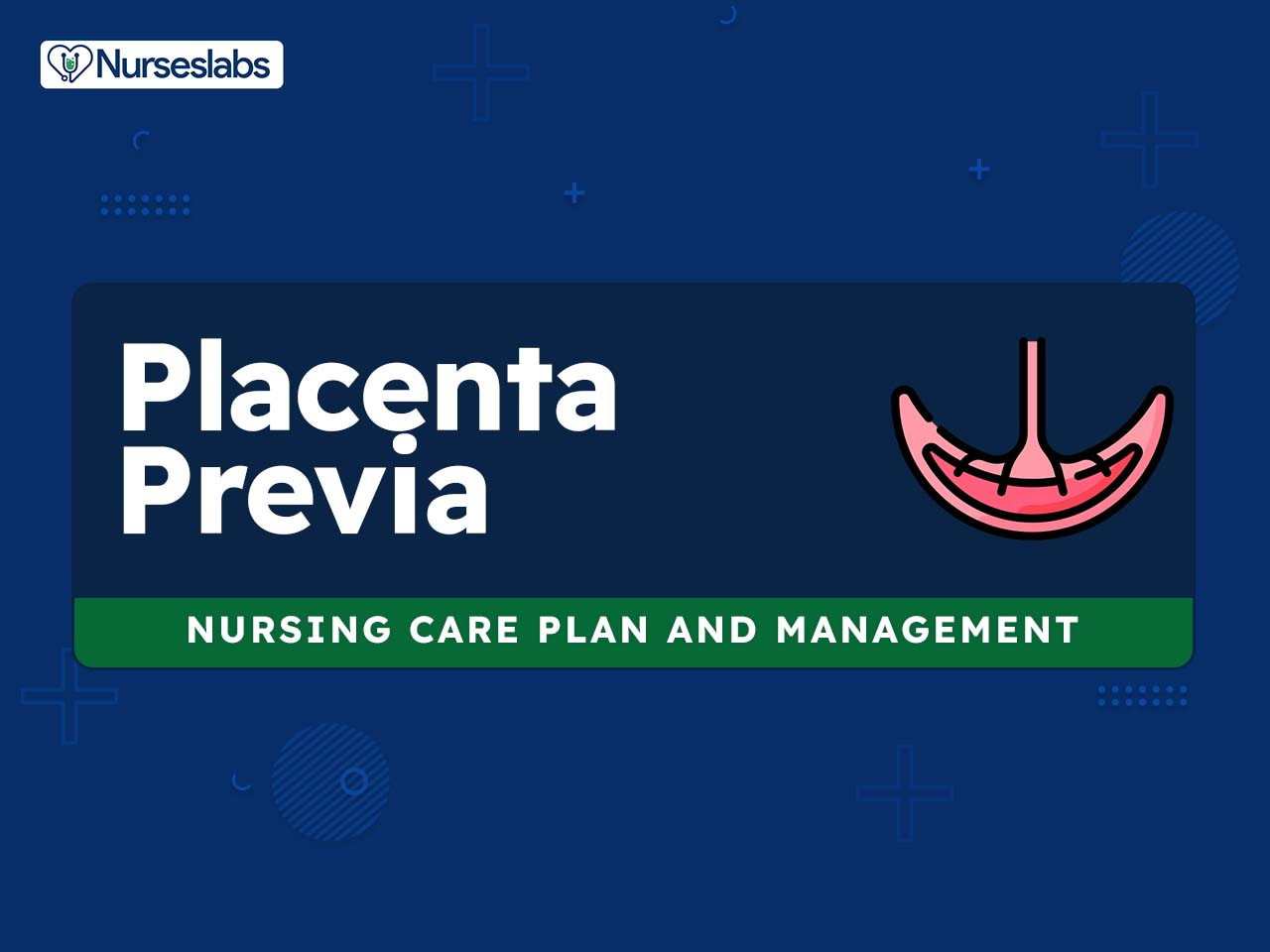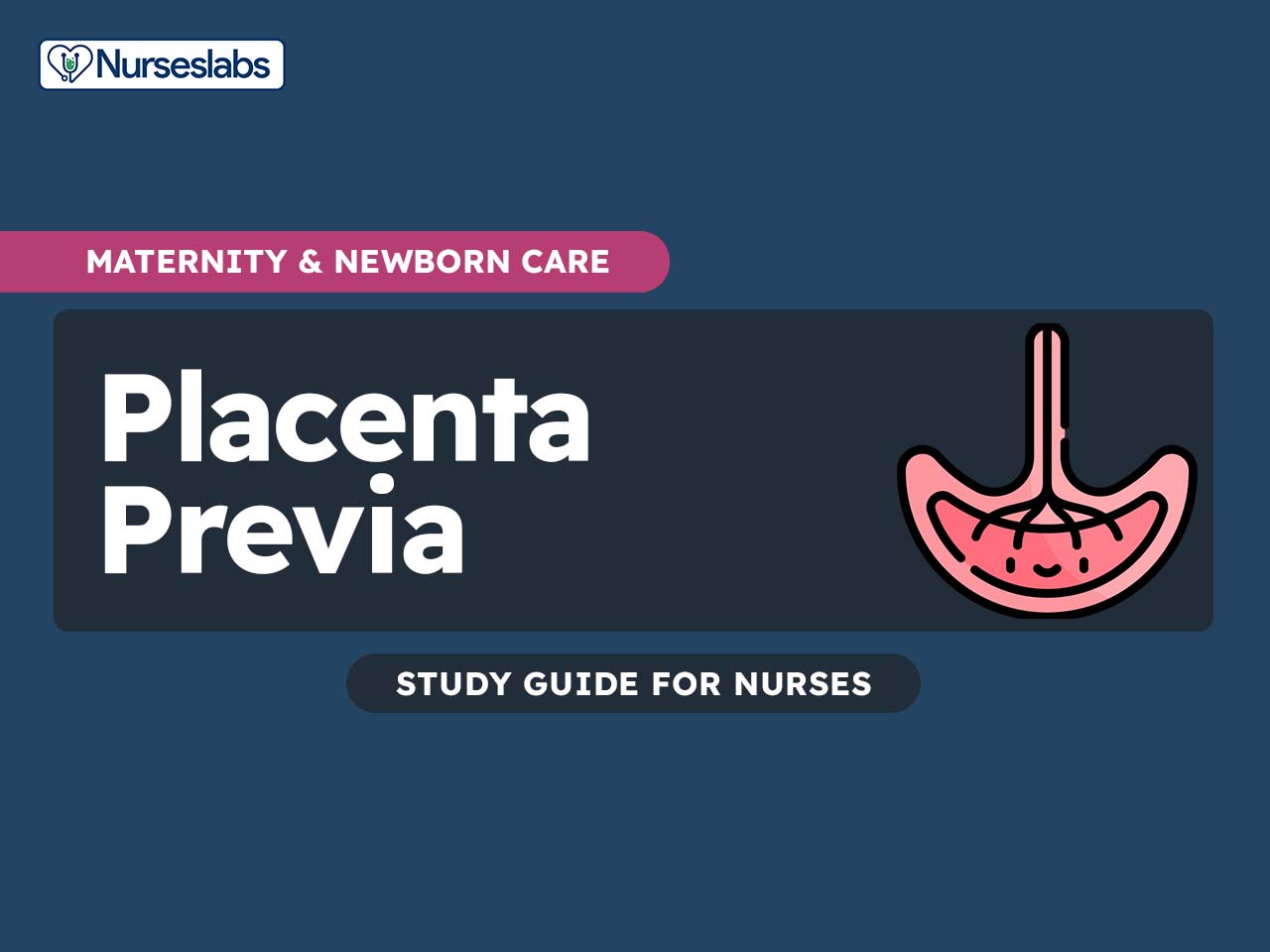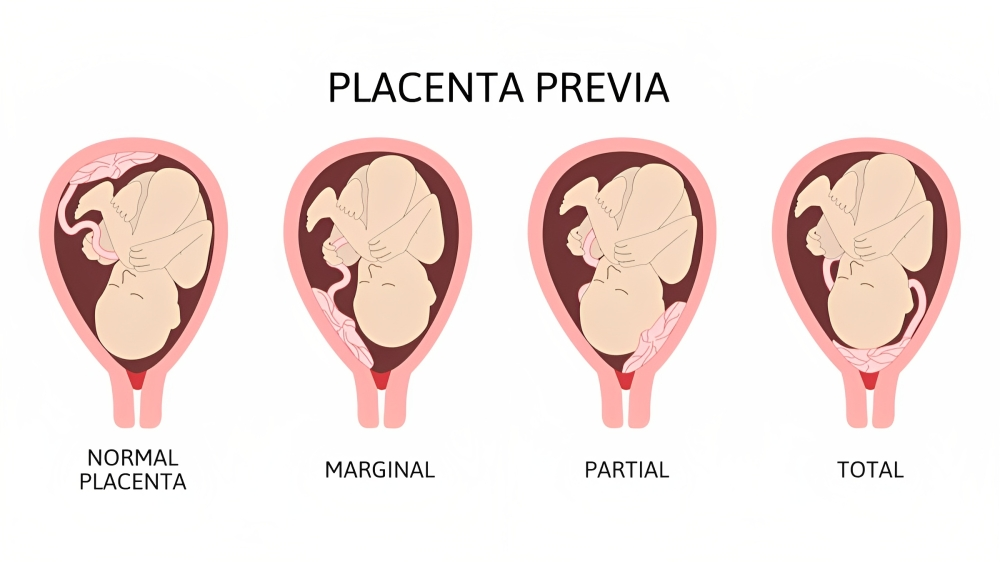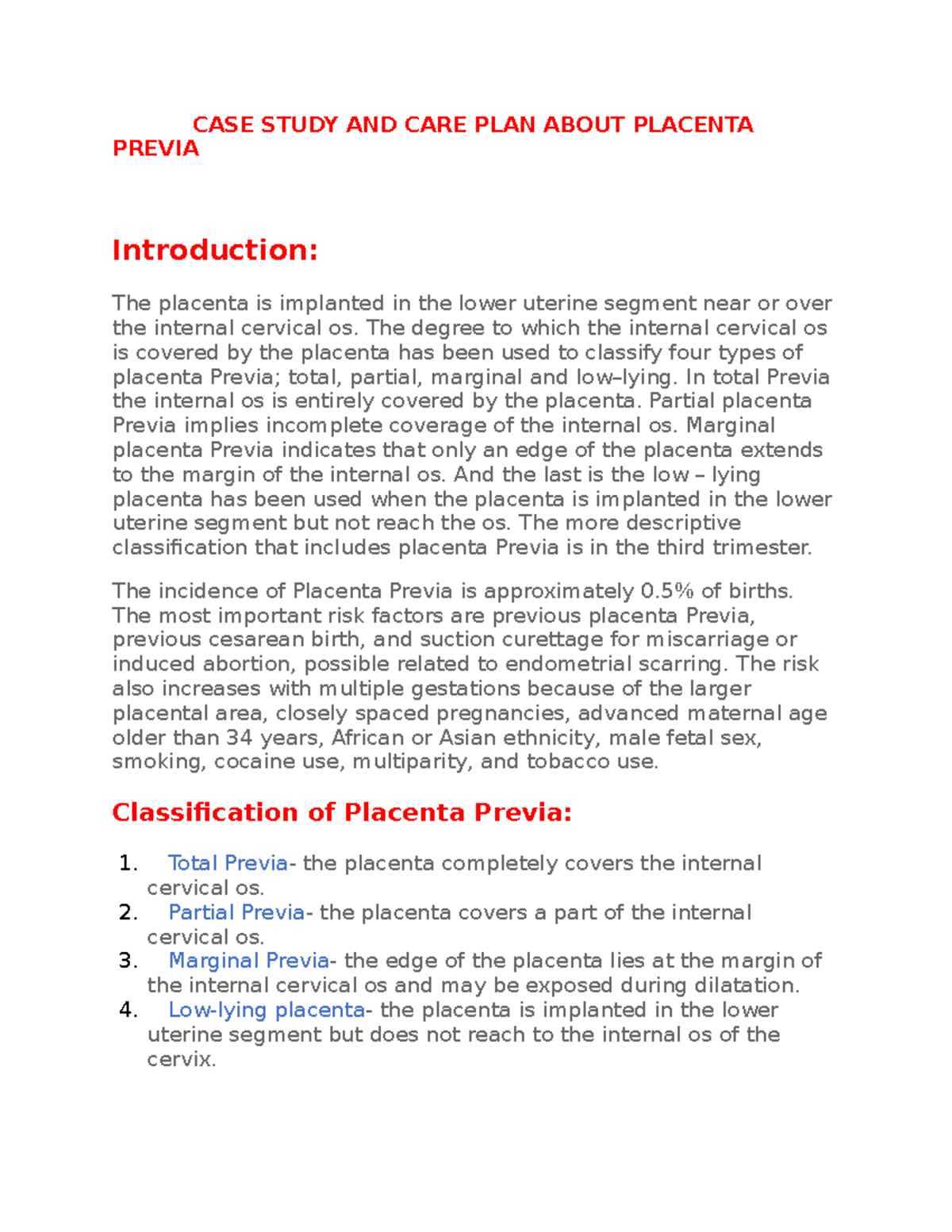Diet Plan For Placenta Previa Patient Placenta previa refers to the presence of placental tissue that extends over the internal cervical os The abnormal placental location can result in severe antepartum intrapartum and or postpartum uterine bleeding Other sequelae include the need for cesarean birth and a high risk for preterm birth The management of pregnancies
Objectives Describe the risk factors for placenta previa Describe the pathophysiology of placenta previa Describe the management of patients with placenta previa and how this varies with gestational age presentation and stability of the patient Summary Placenta praevia PP is an uncommon complication of pregnancy Usually diagnosed on routine ultrasound done for other reasons but may present with painless vaginal bleeding in the second or third trimester Classified as PP if the placenta is directly covering the cervical os or as low lying placenta if the placental
Diet Plan For Placenta Previa Patient

Diet Plan For Placenta Previa Patient
https://d20ohkaloyme4g.cloudfront.net/img/document_thumbnails/75f0fcee50cb91468ae17f01bd45d0fb/thumb_1200_1553.png

5 Placenta Previa Nursing Care Plans Nurseslabs
https://nurseslabs.com/wp-content/uploads/2012/03/Placenta-Previa-Nursing-Care-Plans-and-Nursing-Diagnosis.jpg
Nursing Care Plan Placenta Previa Placenta Childbirth
https://imgv2-1-f.scribdassets.com/img/document/57346180/original/f2a379f684/1583575988?v=1
A low lying placenta is checked for during your routine 20 week ultrasound scan Most women who have a low lying placenta at 20 weeks will not go on to have a low lying placenta later in the pregnancy 9 out of 10 women with a low lying placenta at their 20 week scan will no longer have a low lying placenta when they have their follow up scan Placenta previa is the complete or partial covering of the internal os of the cervix with the placenta 1 2 3 It is a major risk factor for postpartum hemorrhage and can lead to morbidity and mortality of the mother and neonate 4 This situation prevents a safe vaginal delivery and requires the delivery of the neonate to be
Women with placenta previa or low lying placenta are at increased risk of maternal fetal and postnatal adverse outcomes that include a potentially incorrect diagnosis and possibly unnecessary hospitalization restriction of activities early delivery or cesarean delivery This information is for you if you have placenta praevia a low lying placenta after 20 weeks of pregnancy and or placenta accreta where the placenta is stuck to the muscle of your womb It also includes information on vasa praevia It may also be helpful if you are a partner relative or friend of someone in this situation
More picture related to Diet Plan For Placenta Previa Patient

Pin On Nursing
https://i.pinimg.com/originals/75/a9/36/75a936e24d023c9926bee1c5b103f4f6.jpg
Nursing Nursing Care Plan NCP Placenta Previa
http://1.bp.blogspot.com/_ACMP_K_Nvzc/SVO1whqJ_oI/AAAAAAAABq4/nk5C286993I/w1200-h630-p-nu/PLACENTA+PREVIA1.JPG

Placenta Previa Nursing Care Plan And Management
https://nurseslabs.com/wp-content/uploads/2016/05/Placenta-Previa-Nursing-Notes-Study-Guides.jpg
Goals The main goals during management of asymptomatic patients are to Determine whether the previa resolves with increasing gestational age Determine whether the placenta is also morbidly adherent placenta accreta spectrum Reduce the risk of bleeding Determine the optimal time for planned cesarean birth if the previa The diet plan for a placenta previa patient should include a variety of fruits vegetables whole grains lean proteins and healthy fats These foods provide the necessary nutrients to support the growth and development of the baby as well as maintain the mother s health
Placenta previa Patient Information Series What you should know what you should ask Placenta previa is associated with an increased risk of perinatal and maternal adverse outcomes especially in the context of maternal haemorrhage Bleeding is associated with an increased risk of premature birth blood transfusion admission to intensive care need for A placenta praevia means the placenta is on the lower part of the womb near to or covering the cervix neck of the womb A placenta praevia may also be referred to as a low lying placenta As many as 1 in 20 pregnancies will have a low lying placenta which is usually found at the 20 week scan

Placenta Previa
https://wcs.smartdraw.com/obgyn/examples/placenta-previa.png?bn=15100111799

Placenta Previa Dos And Don ts Your Guide To A Healthy Pregnancy In 2023 The Nurse Page
https://www.thenursepage.com/wp-content/uploads/2023/06/placenta-previa-types-Placenta-Previa-Dons-and-Donts.png

https://www. uptodate.com /contents/placenta-previa-management
Placenta previa refers to the presence of placental tissue that extends over the internal cervical os The abnormal placental location can result in severe antepartum intrapartum and or postpartum uterine bleeding Other sequelae include the need for cesarean birth and a high risk for preterm birth The management of pregnancies

https://www. ncbi.nlm.nih.gov /books/NBK539818
Objectives Describe the risk factors for placenta previa Describe the pathophysiology of placenta previa Describe the management of patients with placenta previa and how this varies with gestational age presentation and stability of the patient

NCP Placenta Previa Totalis Placenta Previa Totalis Mykaella Nicole Uy Nursing Care Plan Studocu

Placenta Previa

Placenta Previa Nursing Management
Assignment Patient With Placenta Previa Assignment Patient With Placenta Previa Paper Should

SOLUTION Placenta Previa Nursing Care Plan Management Studypool

Pin On Nursing

Pin On Nursing

5 Placenta Previa Nursing Care Plans Nurseslabs

Placental Ab Maternity Placental Abnormalities Placenta Previa Is Abnormally Low

Placenta Previa Low Placenta During Pregnancy Best Gynaecologist In Trivandrum
Diet Plan For Placenta Previa Patient - Planning If suspected placenta accreta Around 36 weeks If persistent low lying placenta or placenta praevia at 32 weeks and the woman remains asymptomatic An additional TVS is recommended to inform discussion about mode of delivery 4 4 1 Imaging Ultrasound imaging should be performed by a skilled operator with experience in diagnosing
